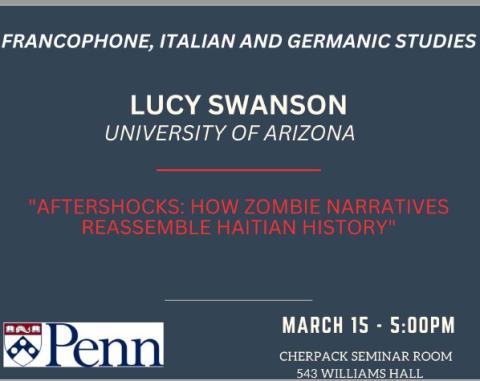
The zombie legend first emerged centuries ago in Haitian popular beliefs, in the context of enslavement and colonization. Today, the zombie represents a walking embodiment of this historical memory. As a body robbed of the portion of the soul containing personality and will, often forced to labor on sugar cane plantations, it inevitably evokes—and perhaps parodies—chattel slavery. Since that time, it has served as a narrative vehicle for political and social critique, whether of the French Atlantic slave trade, the Duvalier dictatorship in Haiti or—following its metamorphosis into a violent consumer of human flesh—of societal decay from Romero’s Night of the Living Dead to HBO’s adaptation of the video game The Last of Us. If much has been written about the zombie’s post-Romero transformation, the living dead’s Haitian avatars have continued to evolve, their literal metamorphoses renewing their potential for representing and interrogating Haitian history and politics. This talk examines how two post-earthquake works—Haitian writer Gary Victor’s 2011 detective novel Soro and French director Bertrand Bonello’s 2019 film Zombi Child—use the zombie to consider the disaster as it relates to Haitian history more broadly, examining how the zombie can be used to interrogate and even contest dominant narratives about the nation—but also considering the limits to its powers of historical reframing and resistance.
Location: Cherpack Seminar Room, 543 Williams Hall